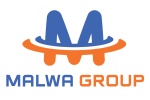The Ultimate Guide to Information Portals in the USA: Enhancing Access to Knowledge
What Are Information Portals and Why They Matter
Information portals act as digital knowledge hubs, consolidating vast amounts of data into easily navigable platforms. These systems are essential in today’s fast-paced world, where data accessibility and secure information sharing are critical for both individuals and organizations. From academic institutions to corporate environments, information portals streamline access to resources, fostering innovation and informed decision-making.
Key Features of Modern Information Portals
Modern information portals prioritize user-centric design, offering features like advanced search tools, personalized dashboards, and seamless integration with emerging technologies. As online resource centers, they provide real-time updates, ensuring users stay informed. For instance, some portals leverage AI to predict user needs, enhancing data accessibility while maintaining strict security protocols for secure information sharing.
Benefits of Information Portals for Businesses and Individuals
rich palms casino app serves as a prime example of how information portals can transform user experiences. For businesses, these platforms reduce operational costs by centralizing data management, while individuals gain instant access to educational materials and industry insights. By acting as digital knowledge hubs, information portals bridge gaps between diverse stakeholders, promoting collaboration and efficiency.
Security Measures in Information Portals
Secure information sharing is a cornerstone of reliable information portals. Advanced encryption, multi-factor authentication, and regular audits protect sensitive data from breaches. Developers also implement role-based access controls, ensuring only authorized users can view specific content. These measures build trust, making information portals indispensable for sectors like healthcare and finance.
Case Studies: Successful Information Portals in the USA
Examples like the National Institutes of Health’s portal highlight the impact of well-designed information systems. By aggregating research data, they enable scientists to collaborate globally. Similarly, university libraries use information portals to offer students and researchers access to journals, databases, and digital archives, reinforcing their role as online resource centers.
Trends Shaping the Future of Information Portals
The rise of AI-driven analytics and blockchain technology is redefining information portals. These innovations enhance data accessibility while ensuring transparency. Future portals will likely integrate virtual reality for immersive learning, further solidifying their position as digital knowledge hubs in both education and business.
Best Practices for Designing Effective Information Portals
Creating an effective information portal requires intuitive navigation, mobile responsiveness, and robust backend infrastructure. Prioritizing user feedback ensures the platform evolves with changing needs. Additionally, aligning with industry standards for data accessibility and secure information sharing builds long-term credibility.
Challenges in Implementing Information Portals
Despite their benefits, challenges like high initial costs and resistance to change can hinder adoption. Organizations must invest in training and demonstrate clear ROI to overcome these barriers. Ensuring compatibility with existing systems is also crucial to avoid disruptions in workflow.
User Experience Considerations for Information Portals
A seamless user experience hinges on minimalistic design, fast load times, and multilingual support. Portals should cater to diverse audiences, including those with disabilities, by adhering to accessibility guidelines. Personalized content recommendations further enhance engagement, making information portals more than just repositories—they become interactive tools.
Integration with Emerging Technologies
Integrating technologies like IoT and machine learning allows information portals to offer predictive insights. For instance, smart cities use such systems to manage resources efficiently. This synergy not only improves data accessibility but also empowers users to make proactive decisions in real time.
Regulatory Compliance in Information Portals
Compliance with regulations like GDPR and HIPAA is non-negotiable for information portals handling personal data. Developers must embed compliance into the platform’s architecture, ensuring secure information sharing and transparent data practices. This adherence protects both users and organizations from legal risks.
Customization Options for Tailored Information Portals
Customizable interfaces allow users to tailor portals to their specific needs. Whether it’s a student accessing course materials or a manager reviewing sales reports, flexibility in layout and functionality enhances usability. These portals act as digital knowledge hubs, adapting to the unique demands of their audience.
Analytics and Reporting in Information Portals
Robust analytics tools track user behavior, helping administrators refine content and improve performance. Real-time reporting features enable stakeholders to monitor trends, ensuring information portals remain relevant and aligned with evolving user expectations.
Community Engagement Through Information Portals
By incorporating forums, discussion boards, and collaborative tools, information portals foster community interaction. These spaces encourage knowledge exchange, turning portals into dynamic online resource centers that thrive on collective input and shared expertise.
How to Choose the Right Information Portal Solution
Selecting the ideal portal involves evaluating scalability, security, and user reviews. Prioritize solutions that offer seamless data accessibility and secure information sharing, along with strong customer support. A trial period can help assess whether the platform meets your specific goals as a digital knowledge hub.
